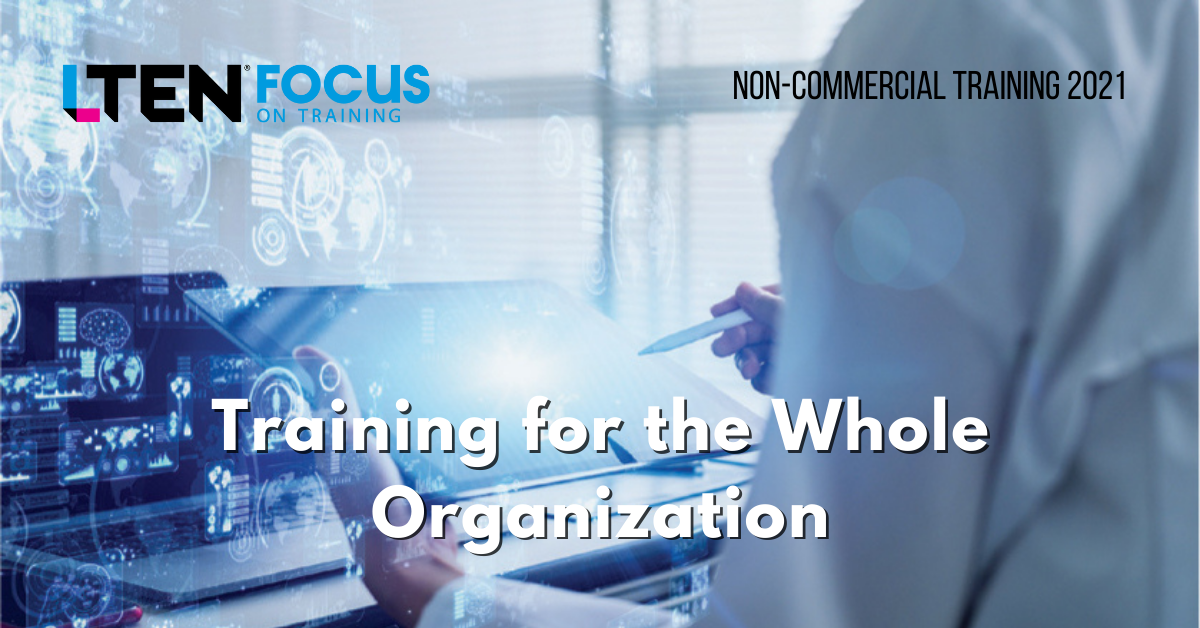
Training for the Whole Organization
FROM THE PRESIDENT – Richard Sampson
When the pandemic happened, our non-commercial colleagues stepped front and
center.
Welcome, everyone. And I mean everyone.
For the second time in as many years, it’s my honor to welcome you to this very special issue of LTEN Focus on Training magazine. While aimed at our training colleagues in the non-commercial areas of life sciences, it also provides a perfect time to take note of training’s full reach.
So, for this issue, like we do in other articles throughout the year, we’re exploring the training function beyond the teams that prepare the representatives. As you’ll see in this issue, there may be different challenges and unique approaches, but the bottom line is the same everywhere – trainers work to grow capabilities that build potential that breeds success.
That “it takes a village” approach to training is, of course, the right approach for learning leaders to take. In today’s rapidly changing business marketplace, the smart business sharpens all the knives in its drawer and keeps all pieces ready to contribute.
If you’re unsure why – and I know you’re not – there’s no better example than the past year or so. Out of nowhere, the world was thrown a curveball, and if there were ever a “when the going gets tough” time, this was it. With people literally taking shelter against the unknown, and times looking bleak at best, life sciences stepped up and shined. And that glow might not have been coming from the stars you’d have expected.
When the pandemic happened, simply put, our non-commercial colleagues stepped front and center. While our commercial teams were busy figuring out how to keep contact with their clients, the non-commercial folks – the research teams, the medical liaisons and the manufacturers – were building vaccines.
 And together came the non-commercial solution and the new commercial networks. Amid unprecedented crisis, life sciences training made its mark once again.
And together came the non-commercial solution and the new commercial networks. Amid unprecedented crisis, life sciences training made its mark once again.
Now, with this issue, we once again celebrate the totality of training, as we look at all the ways training gives back to the business.
Life sciences, of course, isn’t just this department or that, working independently. Moving from research to conception to testing to commercialization is a full cycle, and trainers are there at all points, ensuring the best possible performance from the diverse teammates. Sometimes it may seem that the non-commercial colleagues are toiling quietly in the background, but their work is present in everything our companies do.
Which is why, once again this year, we’ve put together this issue with tools and tips to support your non-commercial training needs. Over these pages, our authors – all training industry experts – will share with you solutions and support. They’ll talk with you about topics such as compliance, virtual solutions, medical affairs training, change management and learning enablement. I think you’ll enjoy the food for thought we’re about to pile on your plate.
I’m going to bring this back to you as I wrap it up. Whether you are a noncommercial or commercial trainer, please keep reading. I think there’s something here for everyone.
And, no matter which side of the commercial line you’re on, please share this issue with some of your peers.
I also urge you to share your own stories with us, for future articles and issues. Sharing knowledge is what our industry is about and it’s the foundation of LTEN.
Richard Sampson is president of the LTEN Board of Directors and head of global
training for Cepheid. Email Richard at richard.sampson@cepheid.com.








